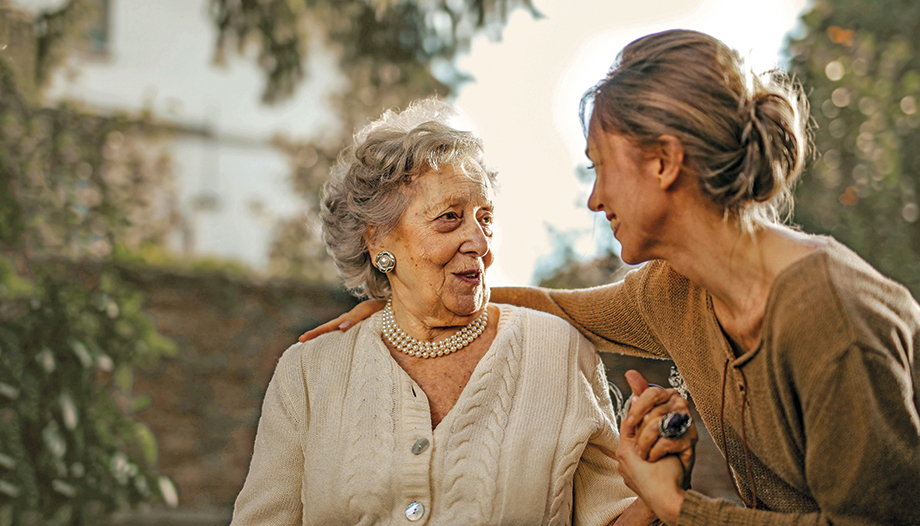With the recent death of Pope Francis, many are wondering how his farewell was: faithful to his style, greeting and staying close to the people, as he always did. Those of us faithful who were in Rome on Easter Sunday were able to see him very close, in my case just two meters away. A few hours later, on my way back to Barcelona, I was moved by the news of his death. Tears of gratitude and also of sorrow welled up in my eyes.
We often think of death as something somber and heartbreaking. We see it as an absurd question mark, a threat that snatches away our longing for happiness. It is an inevitable end point, one that instills fear in us because it is unprecedented: it is experienced only once and in solitude.
The desire for love and eternity, inscribed in the deepest part of the heart, faces a time that fades away. To an existence that, like a candle in the dark, is slowly extinguished or, abruptly, extinguished in a single breath.
Preparation and sudden death
Terminal illness, although painful and arduous, seems to offer a certain logic in the face of the arrival of death. While it highlights the weakness of the body, mind and soul, its progressive nature is somewhat in line with our human parameters. This process, despite the desolation it entails, opens the space for acceptance. It often culminates in a serene ending, where the loved one finds peace in his or her story and says goodbye with love.
On the subject of sudden death, American writer Nathalie Goldberg writes: "The life of each of us is intimately intertwined with that of others. Each of us creates the universe of the other. When someone dies before his or her time, we are all touched." (The Joy of Writing. The art of creative writing, 2023, p. 121). We all remember the poem by Miguel Hernandez -songed so poignantly by Joan Manuel Serrat- after the death of his friend Ramón Sijé, a "who loved so much":
"A hard slap, an icy blow,
an invisible and homicidal axe,
a brutal push has knocked you down.
There is no greater expanse than my wound,
I mourn my misfortune and its sets
and I feel your death more than my life".
The certainty of death
Although death is part of the life cycle, it generates impotence. In any case, although we live under the natural cycle of beginnings and endings, we find it difficult to accept an absolute end. Thus, we often act as if death does not challenge us, as if we were immortal. We are reluctant to accept illness and the end, because they put in dialectic our longing for eternity and our fragile condition. Death, then, confronts us with vulnerability, but also reminds us that it is part of life. And, above all, it invites us to open ourselves to mystery: to silence reason and look at suffering from a different perspective: from the heart.
Indeed, death is the last stretch that each of us must travel in order to bring our own history to a close. And even if in this century we live with our backs turned to it, fleeing at all costs through small or large evasions, or simply trying never to mention its name, we know that sooner or later it will come: this is the only truth of which we are certain. As the French psychotherapist Marie De Hennezel writes: "I know I have to die someday, even if I don't know how or when. There is a corner inside me that knows that truth. I know that one day I will have to say goodbye to my loved ones, unless they are the ones who go first. This certainty, the most intimate and profound I possess, is paradoxically that which I have in common with all other human beings." (Intimate death, 1996, p. 13).
Certainly, this reality can generate sadness, pain and uneasiness, both when we think of our own death and when we lose a loved one. However, it can also contain a profound beauty. As we approach it, it inscribes us in a new order: the ephemeral is transformed into the essential, and the laws of time and space cease to be mere limitations to guide us into a sacred interstice. It is the season of farewell, of embrace, of silence, a time that connects us with the ineffable. In this sense, death can be the place of beauty, the refuge of caresses and consolations that fill every second preparing the last of them. To be and to be with the person who is leaving; to accompany him or her with eloquent glances and tender words. Death invites us to reflect on what is important, to forgive, to be open to transcendence, to love God and others.
The beauty
Human life, fragile and beautiful as a porcelain vase, cracks with the passage of time, marked by pain, loss and, finally, death. But far from detracting from its value, these cracks speak of an existence lived with intensity, with love, with dedication. As in kintsugiWhere gold does not hide the fractures but turns them into art, our wounds can be the place where the truth shines the brightest. Death, then, is not simply the end, but the last golden line that unites all the fragments of a story, giving it form, depth and beauty. And it is love - in forgiveness, in tenderness, in farewell, in the simple act of being there - the gold that gives meaning to every break, also to the last of them.
In this way, death does not annihilate the beauty of life, but crowns it, revealing in its cracks the beauty of the love that shapes human existence.







